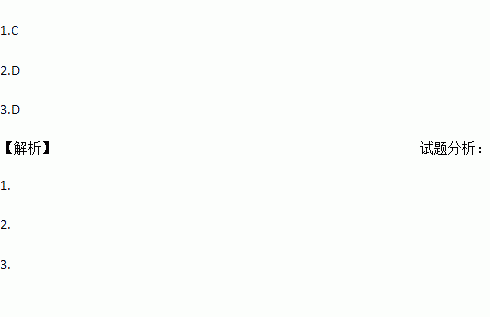题目内容
John H. Johnson was born in a black family in Arkansas city in 1918. His father died in an accident when John was six. He was reaching the high school age, but his hometown offered no high school for blacks.
Fortunately he had a strong-willed caring mother. John remembered that his mother told him many times, “Son, you can be anything you want really to be if you just believe.” She told him not to depend on others, including his mother. “You have to earn success, ” she said. “All the people who work hard don’t succeed, but the only people who do succeed are those who wo rk hard.”
rk hard.”
These words came from a woman with less than a third grade education. She also knew that believing and hard work don’t mean everything. So she worked hard as a cook for two years to save enough to take her son, who was then 15, to Chicago.
Chicago in 1933 was not the promised land that black southerners were looking for. John’s mother and stepfather could not find work. But here John could go to school, and here he learned the power of words—as an editor of the newspaper and yearbook at Du Sable High School his wish was to publish a magazine for blacks.
While others discouraged him, John’s mother offered him more words to live by. “Nothing beats a failure but a try. ”She also let him pawn(典当)her furniture to get the $ 500 he needed to start the Negro magazine.
It is natural that difficulties and failures followed John closely until he became very successful. He always keeps his mother’s words in mind. “ Son, failure is not in your vocabulary!”
Now John H. Johnson is one of the 400 richest people in America—worth $ 150 million.
1.John’s mother decided to move to Chicago because _____.
A. his father died when John was very young
B. life was too hard for them to stay on in their hometown
C. John needed more education badly
D. there were no schools for Negroes in their hometown
2.John’s mother _______.
A. didn’t believe in or depend on others
B. thought one could be whatever one wanted to be
C. believed one would succeed without working hard
D. thought no one could succeed without working hard
3.The underlined sentence “Nothing beats a failure but a try. ”means _____.
A. if you try, you would succeed
B. a failure is difficult to beat, even if you try
C. a try is always followed by a failure
D. no failure can be beaten unless you try


 B.
B. 
 D.
D. 